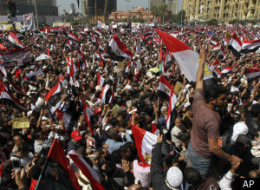As world media discusses and debates the impact of Charlie Hebdo massacre on freedom of expression, Noam Chomsky, offers, as always, a point of view that is unique.
Chomky brings to our attention a serious concern with regards to the dominant media narrative on the Charlie Hebdo incident. Speaking on the commentary that followed, Chomsky writes,
“The crimes also elicited a flood of commentary, inquiring into the roots of these shocking assaults in Islamic culture and exploring ways to counter the murderous wave of Islamic terrorism without sacrificing our values. The New York Times described the assault as a "clash of civilizations," …
Chomsky juxtaposes this against media commentary that followed recent act of violence across the world such as:
- NATO missile attack on the headquarters of a Serbian TV station, termed as an "enormously positive development" by Richard Holbrooke
- July 2011 massacre of 77 people by Anders Breivik, a Christian Ultra Zionist in Oslo
- Assault on Fallujah by US Marines, and,
- Recurring themes such as Israeli violence against Palestine.
All the above incidents were marked by violence against civilians, public institutions, journalists but never quite qualified to feature in narratives of attacks against freedom of expression, freedom itself, or even narratives of outrage and concern on a scale similar to reactions received by the Charlie Hebdo incident.
It's only sensible to wonder why.
In the politics of narrative and perception, Chomsky’s position is significant. The “media power structure” of our world is no different and is the same as the political power structure in international politics. We don’t often realize this, but as stories compete, some voices tend to get lost or are never expressed.
Chomsky states,
“These few examples illustrate a very general principle that is observed with impressive dedication and consistency: The more we can blame some crimes on enemies, the greater the outrage; the greater our responsibility for crimes -- and hence the more we can do to end them -- the less the concern, tending to oblivion or even denial.”
This awareness surprisingly resulted in some Middle Eastern states like Qatar to take the initiative and establish their own international media outlets (Eg. Al Jazeera).
However Middle East’s media landscape, as I experienced in the last couple of years, is completely dominated by experienced professionals from the West or from Asia, who come with great knowledge, but not necessarily always with a “contextual perspective” that is required to tell a story of the “other”.
Coupled with controls over free media in the entire region, difficult questions remain unasked; indigenous experiences remain hidden and the introspection that is required to understand “why is it happening to us” never happens.
Instead, people are told what is wrong with them, often by groups who have no context. The tradition of the story is alien.
As Chomsky states,
Contrary to the eloquent pronouncements, it is not the case that "Terrorism is terrorism. There's no two ways about it." There definitely are two ways about it: theirs versus ours. And not just terrorism.



